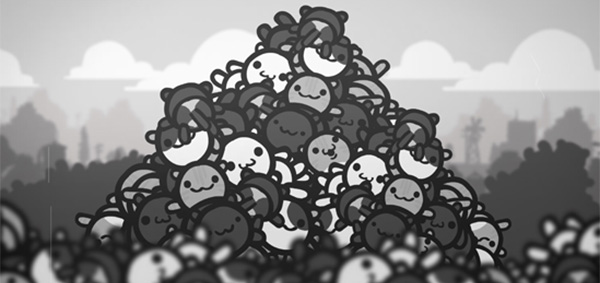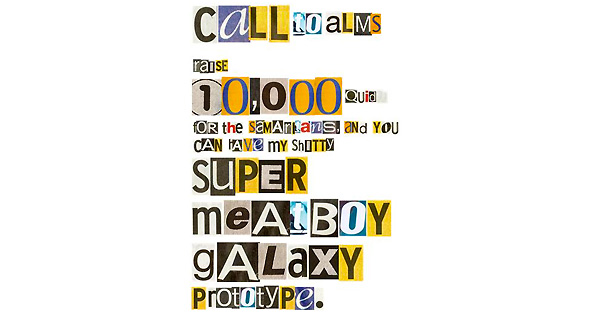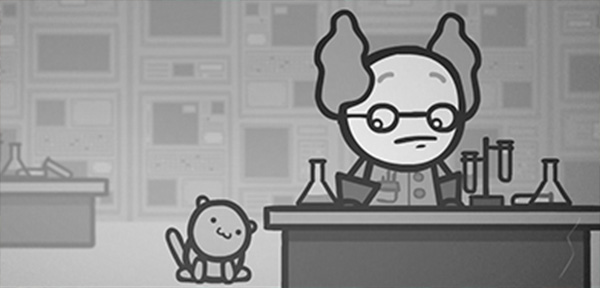

Are hard-as-hell indie games enough to satiate our hunger for a challenge, or should mainstream developers quit trying to appease everyone and start really testing us? In this Face Off from our archives (originally published October 2012), Executive Editor Evan Lahti gives former Senior Editor Josh Augustine a hard time for his willingness to take it easy.
Make your own arguments in the comments—debate team captains: it’s your time to shine.
Evan: Focus testing is the enemy of experimentation and innovation. It widens the audience of a game by watering down the experience. Portal was harder, and better, than Portal 2, which forewent feats like mid-air maneuvering almost completely. Skyrim gave us a detailed wilderness where falling into a freezing lake meant nothing and dragons weren't much more than giant mosquitoes. Remember what dying was like in Diablo and Diablo II? You had to bravely fight back to your corpse to recover your gear with whatever rented junk you could pull together. I miss that brutality, and the feeling of, y’know, actually losing something.
Josh: And Diablo III offers that: in Inferno and Hell difficulty. Either of which can be played with permadeath on. Knock yourself out.
Evan: I’d love to, but Blizzard insists that I can only earn the right to play on a difficulty that can actually kill me by spending hours churning through Children’s Mode, erm, Normal. For every new character.
Josh: So you’re asking to die more? Dying isn't inherently fun or interesting. It’s not the secret sauce of game design. Even if games are a little less hard, it’s only because we’ve grown out of the binary win/lose states of the ’80s and ’90s. Those were motivated by a desire either to get people to put in more coins or to artificially lengthen 8- and 16-bit games that were otherwise short and simple. We’re in an age of gaming diversity and accessibility. More people are playing games; that’s great.
Evan: It’s not about dying more. It’s about wanting game design that uses difficulty creatively. Look at DayZ: you spawn in a 225km2 world with no weapon, no map, and no compass. You have to eat and drink. Everything is trying to kill you, and death is permanent. Almost every weapon has discrete ammo. If I’m good enough, I can read the stars to find my way.
It’s completely brutal, but more than 400,000 people flocked to it in just a couple months. It’s led Arma 2 to the top of the Steam sales charts for almost as long. Why? Because it does something so few modern games do: it respects your ability to figure it out yourself.
Josh: Difficulty’s out there if you want it. Super Meat Boy, Dustforce, Dungeons of Dredmor, Legend of Grimrock, Amnesia, Mount & Blade... all of these games are variously unforgiving. Dark Souls’ PC release is called the “Prepare To Die Edition.” Dota 2 and League of Legends are making judgmental, complex multiplayer games mainstream again. In Tribes: Ascend, I have to make mid-air skillshots at 225km an hour. What more do you want?
Evan: All the games you mentioned are from independent studios. They’re from the fringes. No one in the mainstream is embracing consequence-driven gaming, and as long as that’s the case, I think game design will continue to stagnate. I’m bored of regenerating health and checkpoints. And MMOs, honestly, they’re some of the greatest offenders of this because they were born from a model where players were paying an additional fee. Almost all of their design is based around appeasement. There’s no concept of failure or loss or struggle built into them. Every victory is just an eventuality: if you grind or pay enough, you’ll get what you want.
Josh: Even if what you were saying wasn’t a complete generalization (have you played TERA or Rift or DC Universe Online? They’re all totally tough)—a lot of people relish the social freedom and friendly atmosphere that MMOs provide by not punishing you dramatically just because you aggroed one too many cave goblins, or whatever. Difficulty isn't some one-setting-suits-all concept.
Evan: Challenge counts, and modern games are missing it. Without it, we’re just passively consuming content, going through the motions, acting out a puppet show of animations, particle effects, and sound. Even with immediate access to YouTube walkthroughs the moment a game is released, most developers are still desperately afraid of upsetting players or scaring them away. When I play something like DayZ, I feel feelings. My pulse changes. I regret decisions. I get mad. That’s valuable.
Josh: Well, while you’re getting mad that games don’t make you mad enough, I’ll be having fun.









 Over-talented game dev
Over-talented game dev 




